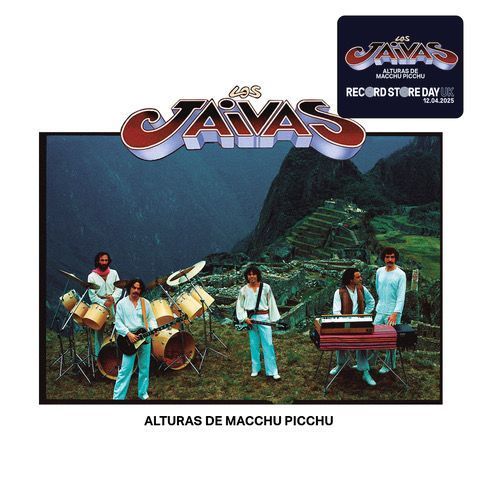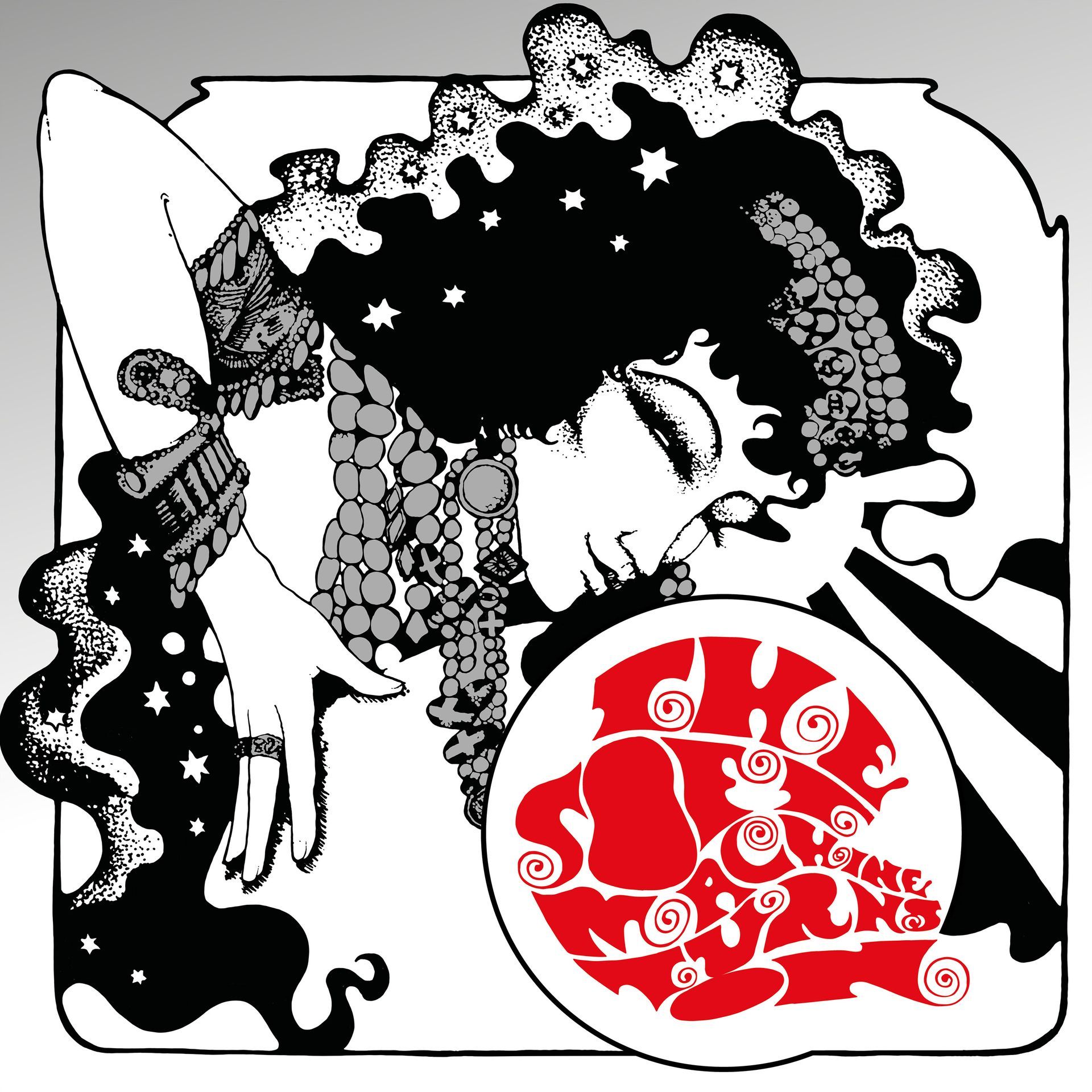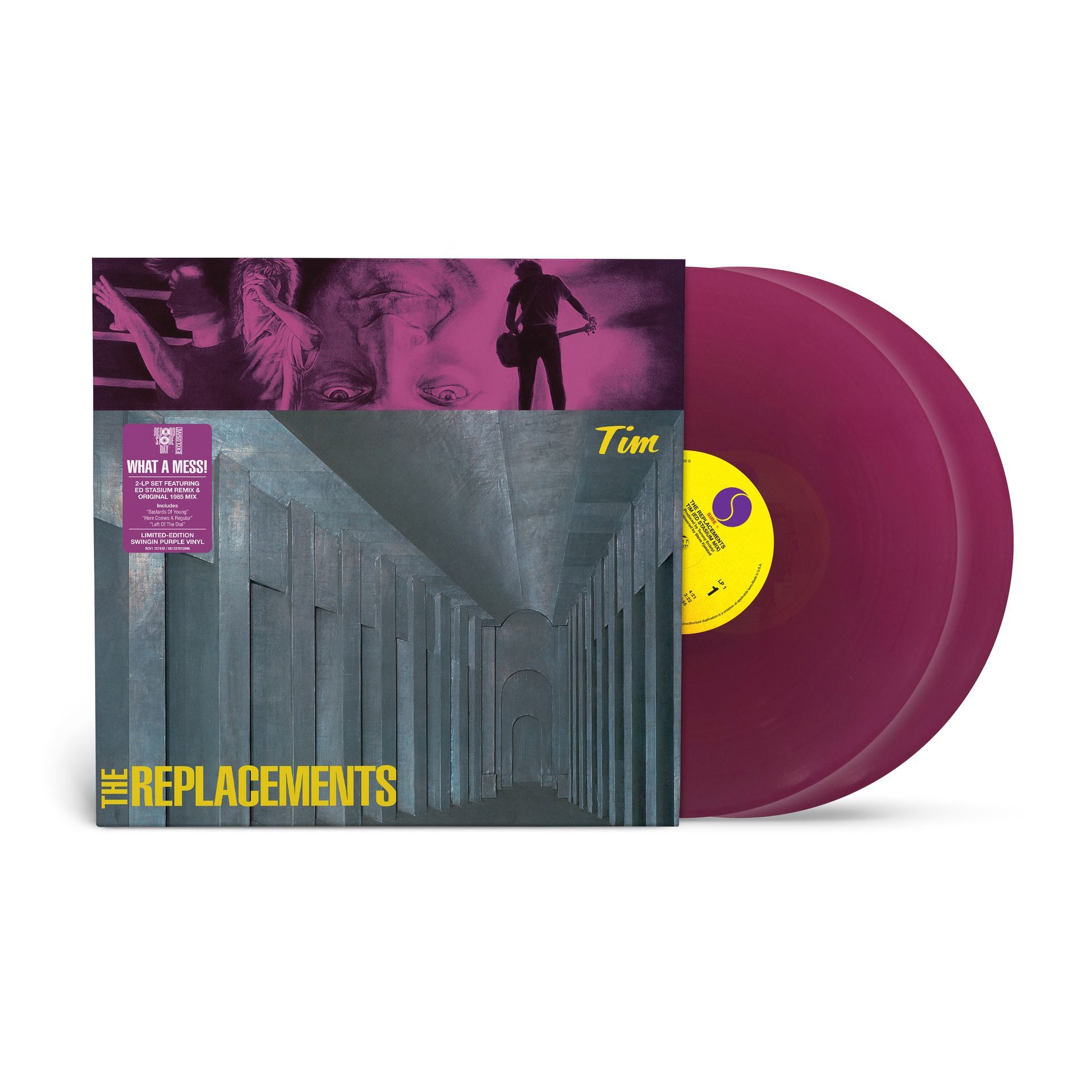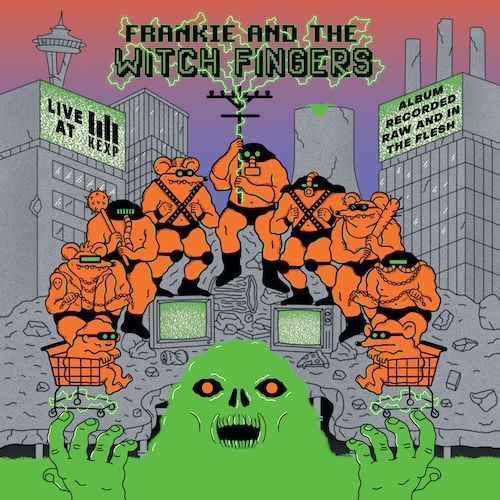Alturas de Macchu Picchu
Los Jaivas
RELEASE DATE: 2025-04-12
LABEL : The state51 Conspiracy
FORMAT:
LP

"state51 proudly presents a brand new remaster of Chilean psych-folk-prog-rock heavyweights Los Jaivas' classic opus - Alturas de Macchu Picchu - on 180g heavy weight coloured vinyl, housed in a newly designed deluxe gatefold sleeve.
Based around the poems of the same name by globally renowned Chilean poet Pablo Neruda, and recorded in Paris during the Pinochet regime, Alturas sees the band blend deep Andean music, with synths and an approach to reinterpreting traditional music that touches on the UK folk rock acts of 10 years before - Fairport Convention and Trees.
Alturas de Macchu Picchu has since become one of the most seminal albums in South America; an icon for Andean culture, a fundamental musical text in Chilean music - now this RSD edition will bring new fans deep into the world of Los Jaivas and the Heights of Macchu Picchu.
Sleeve Notes:
Los Jaivas sleevenotes
Then up the Ladder of the earth I climbed
Through the barbed jungle’s thickets
Until I reached you Macchu Picchu”
Pablo Neruda, The Heights of Macchu Picchu, 1947
A slow fade-in, like a sunrise over ancient rock. The sound of wind over cloud-drenched mountains. Birdsong and Andean pipes rise, and a band of white-clad men strike up instruments – quena flutes, zampona panpipes, ocarinas, a grand piano – scattered amongst the ruins of an Incan city, singing of death, struggle and rebirth. Then come rock drums, guitar solos and the alien wails of a minimoog, conjuring a psychedelic tempest, as if the old spirits were singing too.
The people of Chile, watching at home in October 1981 on a Catholic TV channel approved by their military dictatorship, had rarely seen anything so free. Here were Los Jaivas - the country’s most popular band, living abroad since 1973 – performing an evocative and inventive new album called Alturas de Macchu Picchu on a site deeply symbolic of Latin America’s shared folk culture. The words they sang, too, resonated with significance. The album’s lyrics were taken from a poem by Chile’s Nobel Prize winning poet Pablo Neruda called The Heights of Macchu Picchu, inspired by his travels to Peru in 1943 and included in his epic 1950 book Canto General, a collection of poems striking at the heart of indigenous cultures across South America. These were stirring words of pride, love and despair, seeped from the stone of lost civilisations and ancient landscapes. Words mourning the human loss of Macchu Picchu but summoning its forgotten peoples to rise from the ashes, find voice in the music and grasp control of their own destiny. The film’s presentation smacked of an Andean folk rock take on Pink Floyd’s Live at Pompeii, but the message struck far deeper.
“It’s almost like a Wagner show for Latin America,” says Jorge Larrain of the Transamericas label, who has been reissuing Los Jaivas’ music in South America since 2016. “It had film, literature and rock music. The music is kind of tragic and sad but the beauty of it all is a unifying moment for Chile and a very hopeful one.” In the wake of the programme, and full performances of the album in Lima, Peru and across Argentina, Alturas de Macchu Picchu took on a legendary standing in Chilean music; most of its tracks were major hits and the record came to be considered a national treasure and a definitive work in the country’s folk-rock lineage.
Los Jaivas’ road to Macchu Picchu, however, was almost as tangled as Neruda’s. When they formed as the High Bass in 1963 around the family fulcrum of brothers Eduardo, Claudio and Gabriel Parra, together with their childhood friends Gato Alquinta and Mario Mutis, they played bossa novas and boleros at teenage parties. But as the sounds of psychedelia seeped into Chile in the late Sixties through the records arriving in the port of their hometown of Valparaiso – English acid folk; the cosmic country of Gram Parsons and The Byrds; psych jam groups like the Grateful Dead; Fairport Convention, Pink Floyd and The Beatles – Los Jaivas, as they renamed themselves, evolved around 1970 into an improvisational, experimental progressive group blending traditional Andean folk sounds and instruments with rock influences.
“Through improvisation we were finding our own language,” says pianist Claudio Parra. “We weren’t declared a rock band but through improvisation we found something that felt natural to us, the music from Latin America.” And this unique Los Jaivas language quickly became Chile’s second mother tongue. Following a 1971 debut album El Volantin, largely constructed from excerpts of spontaneous, free-wheeling and avant-garde improvisations, their first single made the band household names in 1972 thanks to its B-side “Todos Juntos” (“All Together”), a rousing psych folk espousing a message of unity: “If this world is one and for everyone, we shall all live together”.
“We had a close relationship with native Americans and did a song called ‘Indian Brother’ [‘Indio Hermano’, 1972] that talks about freeing ourselves through Indigenous cosmovisions,” Claudio says. “That could be looked at as a political statement but it was more in the Latin American side, talking about our ancestors and our original cultures but not really political in the sense of what was going on right then. We were friends with a lot of bands that did make political statements. We didn’t, but what is a political statement? It’s a way of living.”
On tour in Argentina, Los Jaivas saw the winds of change blowing against them back home in Chile, when the military dictatorship of General Pinochet swept to power in a coup in 1973, and decided not to return. There followed four productive years based in Argentina, recording and releasing albums including Los Jaivas (El Indio) (1975) and Cancion Del Sur (1977), before Argentina’s own military coup drove them to Paris via Biarritz in 1977, with the help of the international arms of their label EMI and and some friends who helped them to settle. Hence, in a Parisian mansion with its own parklands attached and a live-in studio technician always on hand, they set up a vibrant musical hothouse which would foster their greatest work.
“The salon of the house, there was a rehearsal room-slash-studio there,” says Claudio. “That was a very productive and creative time. We played all the time. Sometimes just one, sometimes two, sometimes everyone together. There was always some music on. Our kids grew up there and were also playing.”
From here, Los Jaivas forged musical links with the traditional prog folk groups of France, especially Celtic musicians from Brittany, with the rock-and-roots players of Spain and with the Dutch psych scene – “Amsterdam was paradise to us back then,” Claudio smiles. And it was while they were here that a Peruvian producer called Daniel Camino Diez Canseco suggested the idea of them recording a new album based around Neruda’s poem, then filming a performance of it in the ruins at Macchu Picchu itself.
Besides being a renowned poet, Neruda had been an outspoken leftist politician before the coup, and his death from cancer soon afterwards - as he prepared to go into exile from Chile - had long been treated as suspicious by critics of the regime. Hence Los Jaivas saw the opportunity to use his poem in their music, being Macchu Picchu a symbol of the common Latin-American homeland. But the band had never visited Macchu Picchu before. “We’d seen photographs but we’d never been there,” Claudio says. “We didn’t know the place. We knew Macchu Picchu through Neruda. Pablo Neruda brings life to Macchu Picchu in the poem because he envisions what people were doing, what people were suffering and paints a picture of how it was. When Macchu Picchu wasn’t really touristic, he was there.”
Neruda painted the ruined city as a common Latin American homeland, however, and Los Jaivas were immediately inspired. The birdsong which opens the atmospheric first track “Del Aire Al Aire” was recorded in the mansion, and the floating pan pipes and looming guitar of the piece set the tone for the rest of the recording. On tour, band members would make notes for musical ideas on copies of the poem, then try them out in soundchecks. “When we felt we had enough musical pieces to put them together we went to the house and started seriously working on it,” Claudio says. “It was very fast.”
One of the first tracks to come together was “La Poderosa Muerte” (“The Mighty Death”), a sprawling eleven-minute track full of masterful improvisations and dynamic drama, opened with a series of breeze-riding flute motifs and driven by Claudio’s piano. Through the rising squall of psych rock sound and Minimoog effects, singer Eduardo Alquinta wails lyrics collaged from the poem’s various musings on mortality and the demise of the Incas, literally infused with sulphur. For when his voice failed him, the band took advice from the assistant to a famous French singer, called a local physician and had Alquinta injected with sulphur to help him complete the song.
“La Poderosa…”’s ponderous second half, conjuring the ominous chorales and funereal pace of ancient ceremonial processions, climaxed in an austere, Floyd-like wig-out and a sonic explosion, leaving a breathless black space into which “Amor Americano” (“American Love”) could sidle. A jubilant celebration of traditional Andean modes and rhythms delivered with all the invention of avant prog, it invites the listener to appreciate South American culture past and present: “The dead kingdom lives still,” Alquinta sings.
“Aguila Sideral” (“Sidereal Eagle”) opens side two with an entrancing, cosmic, eagle’s-eye-view flight over this primaeval landscape, from the earth of the “Andean serpent” to the mountains’ “snow-capped teeth”. Then austere flutes usher in “Antigua America” (“Ancient America”), a mournful piece reflecting on humanity’s absence in the fall of the Incan empire, growing more pace and power as Claudio and Eduardo embark on a strident piano duel.
The album closes with one of Chilean music’s most popular passages. With its more traditional song format and its Venezuelan joropo style giving it an irrepressible carnival feel, “Sube a Nacer Onmigo Hermano” (“Arise to Birth With Me Brother”) and its choral piano coda “Final” make for a bristling climax of hope, endurance and rebirth which struck a chord with the Chilean people. “Arise to birth with me, brother,” Los Jaivas invited both the dead of Macchu Picchu and their downtrodden homeland, “sharpen the knives you’d locked away, put them on my breast and into my hands…I come to speak through your dead mouths”.
Hence, Los Jaivas arriving at the ruins themselves to perform the album was steeped in significance. Despite filming in areas cut off from tourists, it was a struggle to pull off. “The main challenge was how we took the piano,” Claudio remembers. “At that time the gates of Macchu Picchu were the original doors and the piano didn’t fit. We had to hire a helicopter and the helicopter took it to the top of the mountain.” But, once in place, the band fully immersed themselves in the spirit of the place. “We left the instruments there when we were recording at night,” says Claudio, “and I used to go to the piano to play at night. I had this amazing experience of playing piano at night in Macchu Picchu.”
An experience shared by all who heard the record. For its beauty, thrill and invention, its marriage of troubled past and hopeful present, Alturas de Macchu Picchu has become one of the most seminal albums in South America - “an icon for Andean culture,” Larrain says. “It’s a fundamental piece in Chilean music,” says Claudio, “an important part of the history of recorded music here. Everyone who knows …Macchu Picchu knows what it means.” It means, from tangled forests, an ancient, shattered civilisation can yet rise up to glory.
Mark Beaumont
August 2024
"
Exclusive RSD release, European colour variant (heavyweight 180g vinyl) / includes Booklet with sleeve notes and lyrics - in both Spanish and English / includes exclusive print for RSD
Based around the poems of the same name by globally renowned Chilean poet Pablo Neruda, and recorded in Paris during the Pinochet regime, Alturas sees the band blend deep Andean music, with synths and an approach to reinterpreting traditional music that touches on the UK folk rock acts of 10 years before - Fairport Convention and Trees.
Alturas de Macchu Picchu has since become one of the most seminal albums in South America; an icon for Andean culture, a fundamental musical text in Chilean music - now this RSD edition will bring new fans deep into the world of Los Jaivas and the Heights of Macchu Picchu.
Sleeve Notes:
Los Jaivas sleevenotes
Then up the Ladder of the earth I climbed
Through the barbed jungle’s thickets
Until I reached you Macchu Picchu”
Pablo Neruda, The Heights of Macchu Picchu, 1947
A slow fade-in, like a sunrise over ancient rock. The sound of wind over cloud-drenched mountains. Birdsong and Andean pipes rise, and a band of white-clad men strike up instruments – quena flutes, zampona panpipes, ocarinas, a grand piano – scattered amongst the ruins of an Incan city, singing of death, struggle and rebirth. Then come rock drums, guitar solos and the alien wails of a minimoog, conjuring a psychedelic tempest, as if the old spirits were singing too.
The people of Chile, watching at home in October 1981 on a Catholic TV channel approved by their military dictatorship, had rarely seen anything so free. Here were Los Jaivas - the country’s most popular band, living abroad since 1973 – performing an evocative and inventive new album called Alturas de Macchu Picchu on a site deeply symbolic of Latin America’s shared folk culture. The words they sang, too, resonated with significance. The album’s lyrics were taken from a poem by Chile’s Nobel Prize winning poet Pablo Neruda called The Heights of Macchu Picchu, inspired by his travels to Peru in 1943 and included in his epic 1950 book Canto General, a collection of poems striking at the heart of indigenous cultures across South America. These were stirring words of pride, love and despair, seeped from the stone of lost civilisations and ancient landscapes. Words mourning the human loss of Macchu Picchu but summoning its forgotten peoples to rise from the ashes, find voice in the music and grasp control of their own destiny. The film’s presentation smacked of an Andean folk rock take on Pink Floyd’s Live at Pompeii, but the message struck far deeper.
“It’s almost like a Wagner show for Latin America,” says Jorge Larrain of the Transamericas label, who has been reissuing Los Jaivas’ music in South America since 2016. “It had film, literature and rock music. The music is kind of tragic and sad but the beauty of it all is a unifying moment for Chile and a very hopeful one.” In the wake of the programme, and full performances of the album in Lima, Peru and across Argentina, Alturas de Macchu Picchu took on a legendary standing in Chilean music; most of its tracks were major hits and the record came to be considered a national treasure and a definitive work in the country’s folk-rock lineage.
Los Jaivas’ road to Macchu Picchu, however, was almost as tangled as Neruda’s. When they formed as the High Bass in 1963 around the family fulcrum of brothers Eduardo, Claudio and Gabriel Parra, together with their childhood friends Gato Alquinta and Mario Mutis, they played bossa novas and boleros at teenage parties. But as the sounds of psychedelia seeped into Chile in the late Sixties through the records arriving in the port of their hometown of Valparaiso – English acid folk; the cosmic country of Gram Parsons and The Byrds; psych jam groups like the Grateful Dead; Fairport Convention, Pink Floyd and The Beatles – Los Jaivas, as they renamed themselves, evolved around 1970 into an improvisational, experimental progressive group blending traditional Andean folk sounds and instruments with rock influences.
“Through improvisation we were finding our own language,” says pianist Claudio Parra. “We weren’t declared a rock band but through improvisation we found something that felt natural to us, the music from Latin America.” And this unique Los Jaivas language quickly became Chile’s second mother tongue. Following a 1971 debut album El Volantin, largely constructed from excerpts of spontaneous, free-wheeling and avant-garde improvisations, their first single made the band household names in 1972 thanks to its B-side “Todos Juntos” (“All Together”), a rousing psych folk espousing a message of unity: “If this world is one and for everyone, we shall all live together”.
“We had a close relationship with native Americans and did a song called ‘Indian Brother’ [‘Indio Hermano’, 1972] that talks about freeing ourselves through Indigenous cosmovisions,” Claudio says. “That could be looked at as a political statement but it was more in the Latin American side, talking about our ancestors and our original cultures but not really political in the sense of what was going on right then. We were friends with a lot of bands that did make political statements. We didn’t, but what is a political statement? It’s a way of living.”
On tour in Argentina, Los Jaivas saw the winds of change blowing against them back home in Chile, when the military dictatorship of General Pinochet swept to power in a coup in 1973, and decided not to return. There followed four productive years based in Argentina, recording and releasing albums including Los Jaivas (El Indio) (1975) and Cancion Del Sur (1977), before Argentina’s own military coup drove them to Paris via Biarritz in 1977, with the help of the international arms of their label EMI and and some friends who helped them to settle. Hence, in a Parisian mansion with its own parklands attached and a live-in studio technician always on hand, they set up a vibrant musical hothouse which would foster their greatest work.
“The salon of the house, there was a rehearsal room-slash-studio there,” says Claudio. “That was a very productive and creative time. We played all the time. Sometimes just one, sometimes two, sometimes everyone together. There was always some music on. Our kids grew up there and were also playing.”
From here, Los Jaivas forged musical links with the traditional prog folk groups of France, especially Celtic musicians from Brittany, with the rock-and-roots players of Spain and with the Dutch psych scene – “Amsterdam was paradise to us back then,” Claudio smiles. And it was while they were here that a Peruvian producer called Daniel Camino Diez Canseco suggested the idea of them recording a new album based around Neruda’s poem, then filming a performance of it in the ruins at Macchu Picchu itself.
Besides being a renowned poet, Neruda had been an outspoken leftist politician before the coup, and his death from cancer soon afterwards - as he prepared to go into exile from Chile - had long been treated as suspicious by critics of the regime. Hence Los Jaivas saw the opportunity to use his poem in their music, being Macchu Picchu a symbol of the common Latin-American homeland. But the band had never visited Macchu Picchu before. “We’d seen photographs but we’d never been there,” Claudio says. “We didn’t know the place. We knew Macchu Picchu through Neruda. Pablo Neruda brings life to Macchu Picchu in the poem because he envisions what people were doing, what people were suffering and paints a picture of how it was. When Macchu Picchu wasn’t really touristic, he was there.”
Neruda painted the ruined city as a common Latin American homeland, however, and Los Jaivas were immediately inspired. The birdsong which opens the atmospheric first track “Del Aire Al Aire” was recorded in the mansion, and the floating pan pipes and looming guitar of the piece set the tone for the rest of the recording. On tour, band members would make notes for musical ideas on copies of the poem, then try them out in soundchecks. “When we felt we had enough musical pieces to put them together we went to the house and started seriously working on it,” Claudio says. “It was very fast.”
One of the first tracks to come together was “La Poderosa Muerte” (“The Mighty Death”), a sprawling eleven-minute track full of masterful improvisations and dynamic drama, opened with a series of breeze-riding flute motifs and driven by Claudio’s piano. Through the rising squall of psych rock sound and Minimoog effects, singer Eduardo Alquinta wails lyrics collaged from the poem’s various musings on mortality and the demise of the Incas, literally infused with sulphur. For when his voice failed him, the band took advice from the assistant to a famous French singer, called a local physician and had Alquinta injected with sulphur to help him complete the song.
“La Poderosa…”’s ponderous second half, conjuring the ominous chorales and funereal pace of ancient ceremonial processions, climaxed in an austere, Floyd-like wig-out and a sonic explosion, leaving a breathless black space into which “Amor Americano” (“American Love”) could sidle. A jubilant celebration of traditional Andean modes and rhythms delivered with all the invention of avant prog, it invites the listener to appreciate South American culture past and present: “The dead kingdom lives still,” Alquinta sings.
“Aguila Sideral” (“Sidereal Eagle”) opens side two with an entrancing, cosmic, eagle’s-eye-view flight over this primaeval landscape, from the earth of the “Andean serpent” to the mountains’ “snow-capped teeth”. Then austere flutes usher in “Antigua America” (“Ancient America”), a mournful piece reflecting on humanity’s absence in the fall of the Incan empire, growing more pace and power as Claudio and Eduardo embark on a strident piano duel.
The album closes with one of Chilean music’s most popular passages. With its more traditional song format and its Venezuelan joropo style giving it an irrepressible carnival feel, “Sube a Nacer Onmigo Hermano” (“Arise to Birth With Me Brother”) and its choral piano coda “Final” make for a bristling climax of hope, endurance and rebirth which struck a chord with the Chilean people. “Arise to birth with me, brother,” Los Jaivas invited both the dead of Macchu Picchu and their downtrodden homeland, “sharpen the knives you’d locked away, put them on my breast and into my hands…I come to speak through your dead mouths”.
Hence, Los Jaivas arriving at the ruins themselves to perform the album was steeped in significance. Despite filming in areas cut off from tourists, it was a struggle to pull off. “The main challenge was how we took the piano,” Claudio remembers. “At that time the gates of Macchu Picchu were the original doors and the piano didn’t fit. We had to hire a helicopter and the helicopter took it to the top of the mountain.” But, once in place, the band fully immersed themselves in the spirit of the place. “We left the instruments there when we were recording at night,” says Claudio, “and I used to go to the piano to play at night. I had this amazing experience of playing piano at night in Macchu Picchu.”
An experience shared by all who heard the record. For its beauty, thrill and invention, its marriage of troubled past and hopeful present, Alturas de Macchu Picchu has become one of the most seminal albums in South America - “an icon for Andean culture,” Larrain says. “It’s a fundamental piece in Chilean music,” says Claudio, “an important part of the history of recorded music here. Everyone who knows …Macchu Picchu knows what it means.” It means, from tangled forests, an ancient, shattered civilisation can yet rise up to glory.
Mark Beaumont
August 2024
"
Exclusive RSD release, European colour variant (heavyweight 180g vinyl) / includes Booklet with sleeve notes and lyrics - in both Spanish and English / includes exclusive print for RSD






